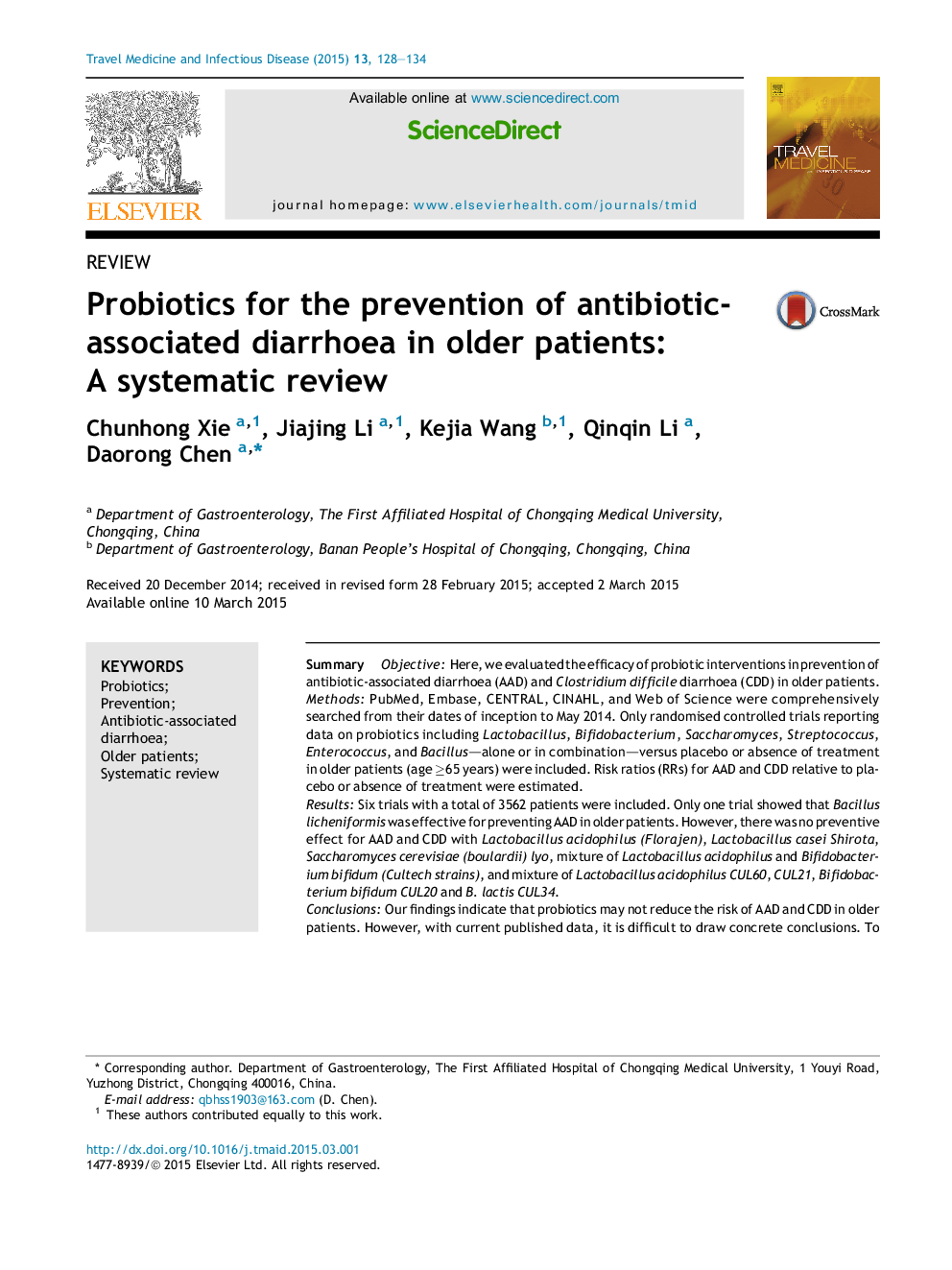| Article ID | Journal | Published Year | Pages | File Type |
|---|---|---|---|---|
| 3392756 | Travel Medicine and Infectious Disease | 2015 | 7 Pages |
SummaryObjectiveHere, we evaluated the efficacy of probiotic interventions in prevention of antibiotic-associated diarrhoea (AAD) and Clostridium difficile diarrhoea (CDD) in older patients.MethodsPubMed, Embase, CENTRAL, CINAHL, and Web of Science were comprehensively searched from their dates of inception to May 2014. Only randomised controlled trials reporting data on probiotics including Lactobacillus, Bifidobacterium, Saccharomyces, Streptococcus, Enterococcus, and Bacillus—alone or in combination—versus placebo or absence of treatment in older patients (age ≥65 years) were included. Risk ratios (RRs) for AAD and CDD relative to placebo or absence of treatment were estimated.ResultsSix trials with a total of 3562 patients were included. Only one trial showed that Bacillus licheniformis was effective for preventing AAD in older patients. However, there was no preventive effect for AAD and CDD with Lactobacillus acidophilus (Florajen), Lactobacillus casei Shirota, Saccharomyces cerevisiae (boulardii) lyo, mixture of Lactobacillus acidophilus and Bifidobacterium bifidum (Cultech strains), and mixture of Lactobacillus acidophilus CUL60, CUL21, Bifidobacterium bifidum CUL20 and B. lactis CUL34.ConclusionsOur findings indicate that probiotics may not reduce the risk of AAD and CDD in older patients. However, with current published data, it is difficult to draw concrete conclusions. To confirm these findings, sample sizes, multi-centre, double-blind studies that consider factors such as probiotic strains and types of antibiotics are required.
